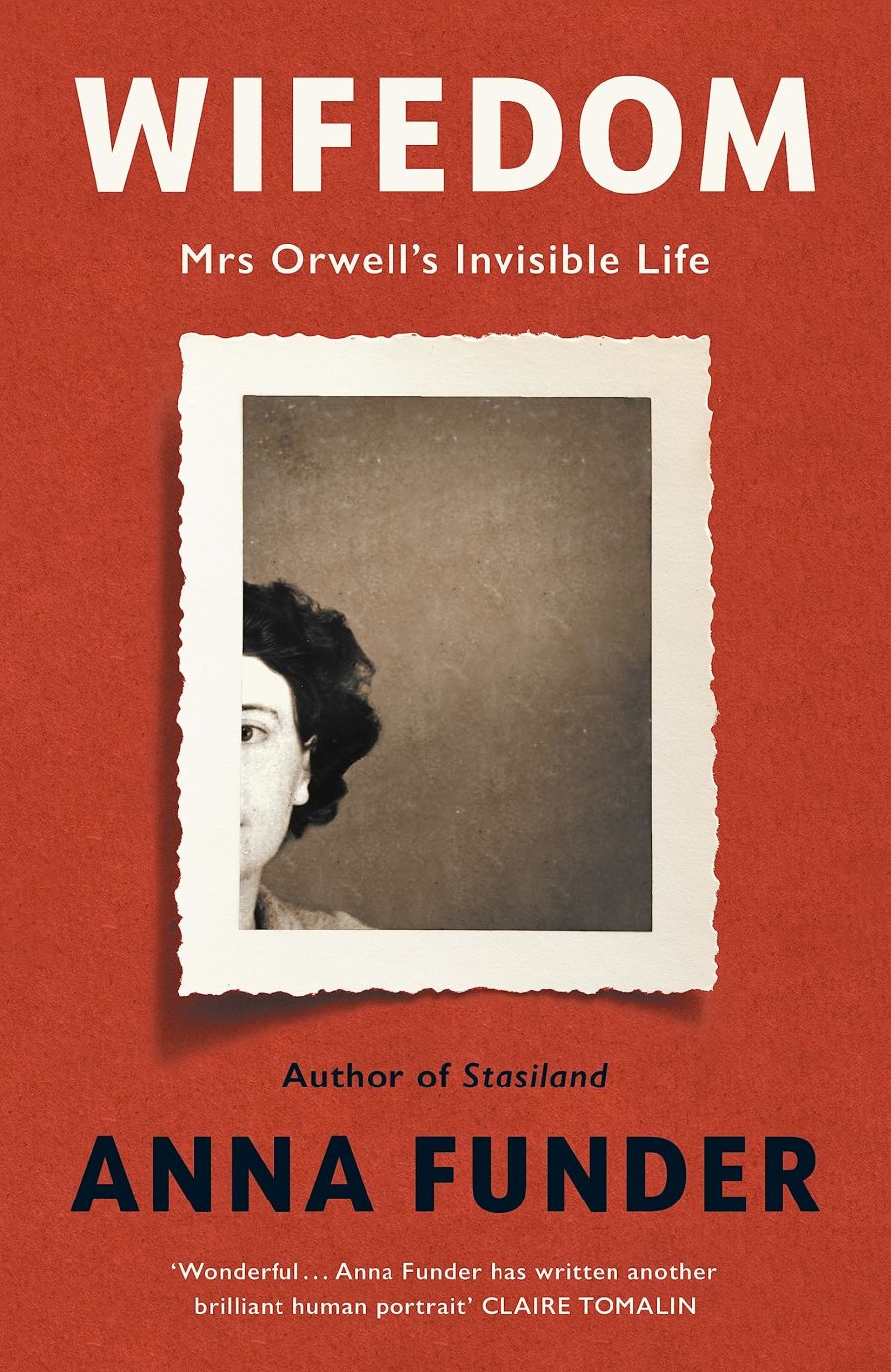Wifedom, Anna Funder

Anna Funder’s Wifedom is one of the most brilliant, original, sad and shocking books I have ever read. It is a reappraisal of the life of George Orwell through newly discovered letters written by his wife Eileen O’Shaughnessy. Orwell is one of Britain’s most revered writers and radicals, our OG class warrior (funny to think possible of someone who went to Eton) and the man who warned the world about totalitarianism and the police state. I’d love to know how he’d protest or avoid all the cameras today.
Anyway…it turns out George, or Eric as he was christened, wasn’t such a dude in his personal life. He was known for being an intensely private chap, which might, if Funder were able to question him from beyond the grave - he died in 1950 at 47 - be his excuse when challenged about why he was not only an absolute shit to his wonderful wife Eileen, but also failed to credit her for any of the work she did for him. And she worked. Not just as his maid, cook, skivvy and private secretary, but also his thoughtful confidante, careful editor, and even the person who seems to have given him half of his best ideas. He also writes as if she wasn’t present at many pivotal life events, such as his time fighting Franco in the Spanish Civil War, and subsequent escape.
Funder argues it is the patriarchy that made all this possible. The simple fact of its successful functioning made it reasonable for Orwell to campaign for human rights outside of the home, and treat his wife as subhuman within it. The patriarchy is also what enabled Eileen to accept this lot, and what, Funder theorised as she jumps from the Orwells’ life to her own, is what enables all women to submit to marriage and other unequal relationships today. Without the ‘doublethink’ Orwell famously coined, why on earth would we go through with it, with all this?
Eilenn was a flourishing student and writer herself when she met Orwell; no-one thought he was a catch for her, quite the opposite. Funder wonders why she gave it all up. Was it an acceptance that any success for her, as a female writer, was unlikely, and therefore she may as well instead work to help Orwell achieve all he might? Certainly his output, when he is well enough to write, is so extensive because he has that gift that I don’t think even exists for unencumbered male writers these days - the freedom to write without interruption, without thought or care for what day it is or what’s planned for the weekend, without even needing to make a cup of tea.
He couldn’t have done any of what makes him our modern Orwell without Eileen. I don’t want to give all the spoilers as if you’re not an Orwell scholar, as I’m not. The facts themselves make for a gripping enough story, without the painstaking detective work of Funder - famous for prize-winning Stasiland - and the eight letters from Eileen to a friend that she unearthed, and which formed the backbone to writing her story. Funder pieces together Eileen’s life through the scant evidence, bringing back to life a woman who should have been as widely commemorated as her husband over the past century.
I regret taking so long to read this book. I was sent a proof back in April and at the time I was writing and trying to focus on reading fiction that made me feel good, that was brilliant but wasn’t necessarily too demanding of my tired brain; books that were entertaining, vibey, modern and fun. But the skill of a master storyteller like Funder can bring all of these things to even this tragic historical tale. I so wish I’d read it earlier and made the time to write about it for the paper.